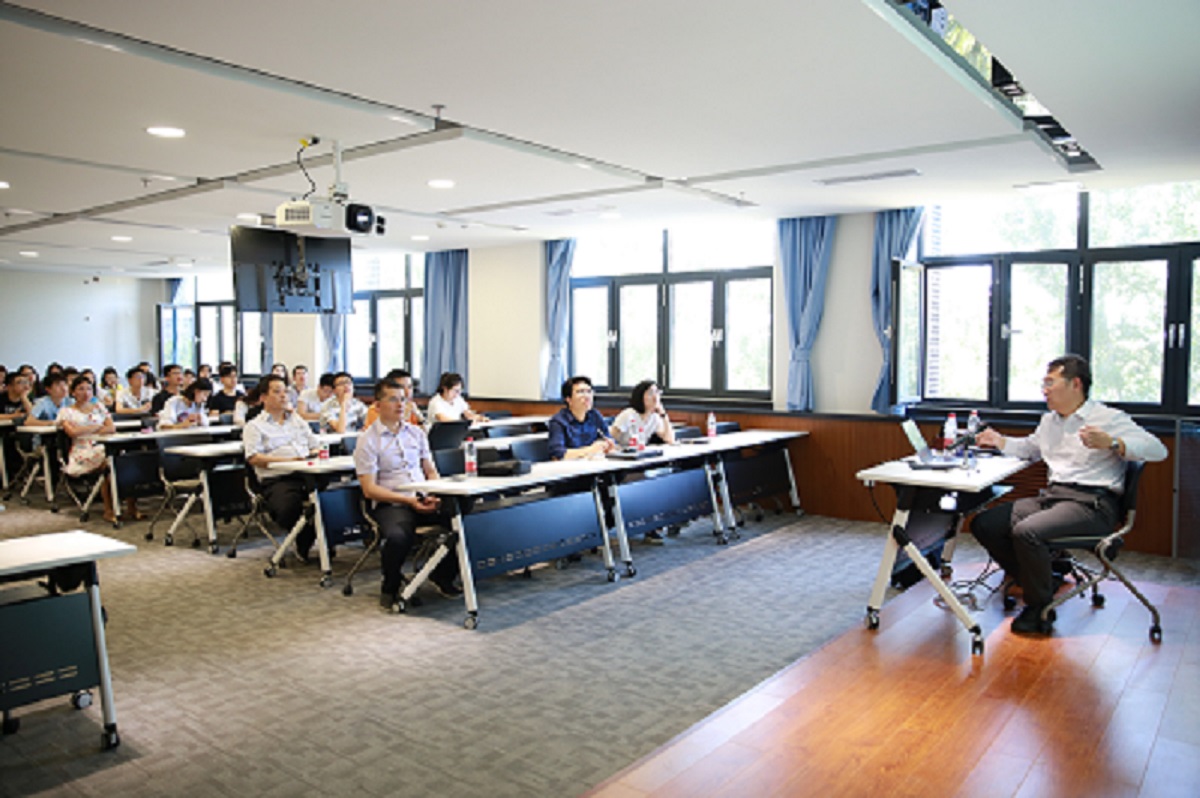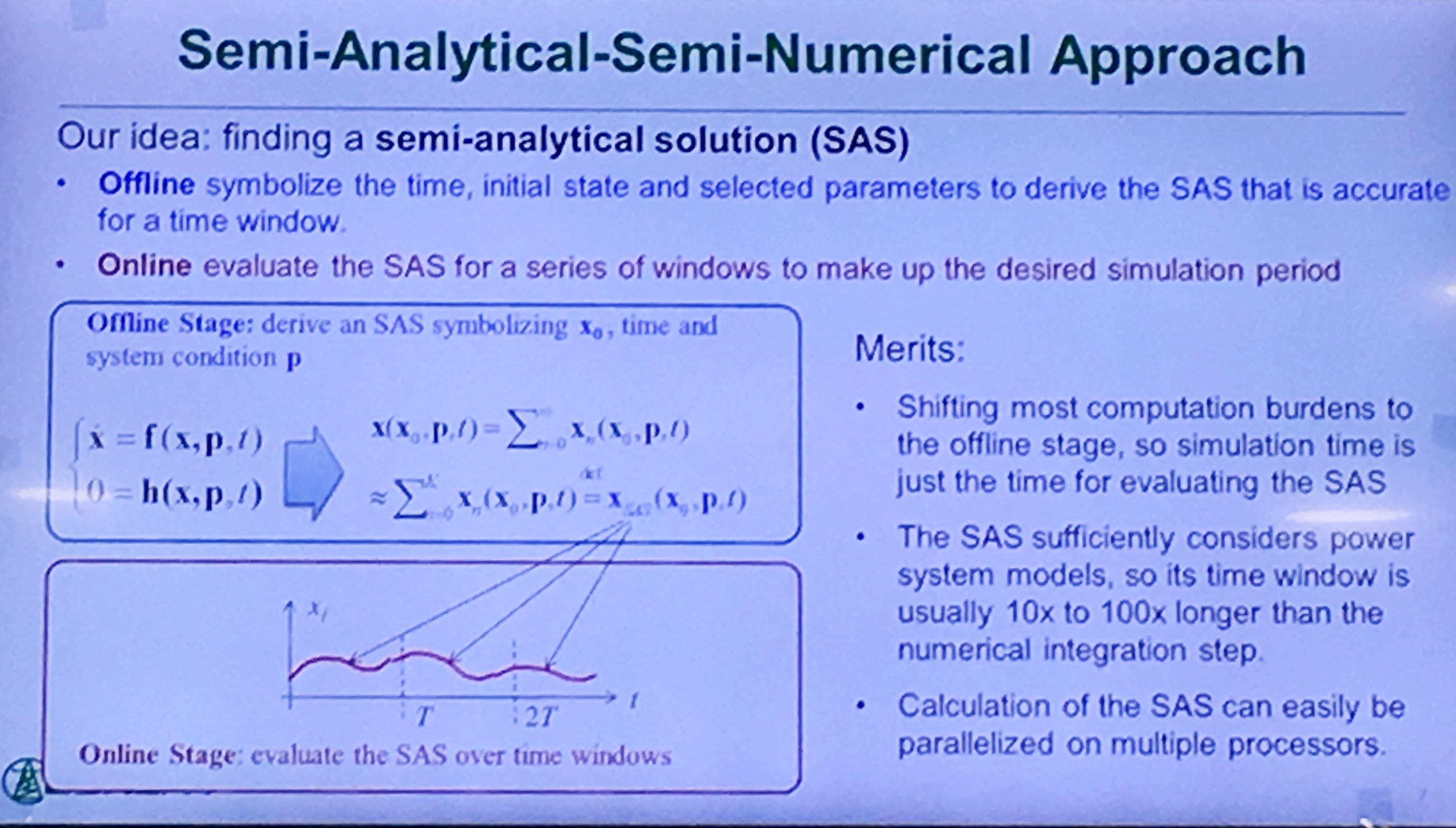
On May 30, Associate Professor Sun Kai at the Department of Electrical Engineering and Computer Science, University of Tennessee paid a visit to NCEPU and made a report entitled “A Semi-Analytical-Semi-Numerical Framework for Faster Power System Simulation”. Associate professor Xu Yanhui presided over the report.

Professor Sun in his report introduced a large power grid simulation method based on semi-analytical framework and the related research work his team has already done. The report, strict and clear in style, inspired the students with not only new theoretical study orientation but also more enthusiasm for exploring the frontier scientific areas, thus enjoyed very much.
Professor Sun made a detailed introduction to the simulation optimization of large power systems by his team with semi-analytical method. He analyzed the interconnection of large-scale power grids in America and pointed out that it requires high accuracy and time margin of the power system simulation model and it is important to optimize the simulation model. And then he made analysis of the offline model DSA currently used by American research institutes and indicated its disadvantage in time consumption and forward looking and proposed semi-analytical solution (SAS) by his team.

SAS conducts simplification to the differential equation analytical expression of the traditional offline simulation model and converts the expression into series form by taylor series expansion so that a mass of analytical calculation is avoided and the calculation time is considerably saved. Professor Sun presented the good performance of SAS in ADM system, SMIB system, multicomputer system and Poland 327-machine 2383 system simulation.
Professor Sun went further to illustrate more applications of the SAS, such as the super real time simulation of parallel systems, the random simulation of power systems with the employment of DERs, the voltage stability simulation within the induction motor systems, and the prospective forecast based on the real time conditions
At the end of the report, Professor Sun interacted with the teachers and students and discussed on some related questions.
CURENT is the Engineering Research Centre supported by the National Science Foundation and the United States Department of Energy. CURENT led by University of Tennessee, Knoxville is aimed at the cooperation in the academic and industrial fields and between national laboratories. CURENT has quite a number of IEEE fellows and university professors, who are dedicated to study the interconnection solution to the large power grids in America and the related control technology.
